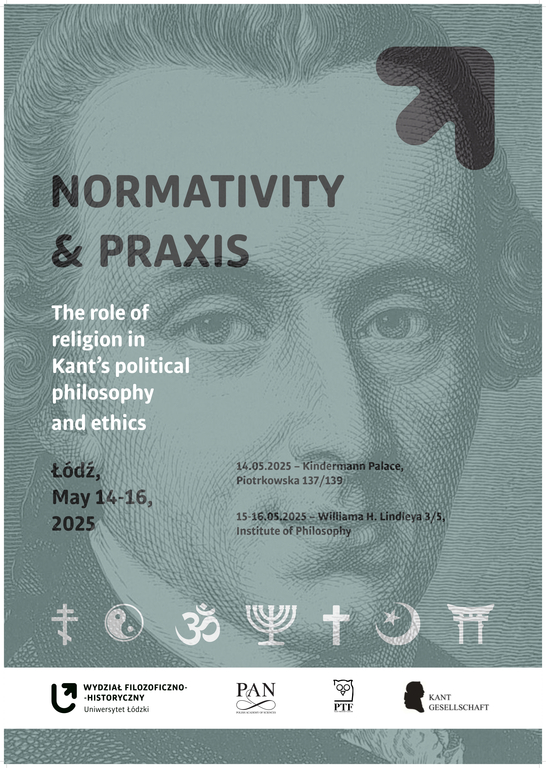About the conference

For Kant, philosophy of religion is a topic of paramount importance. He addresses it particularly in the writing Religion within the Limits of Reason alone (1793). In the spirit of the Enlightenment, Kant vehemently opposes all forms of speculative exuberance, superstition, spiritual fanaticism and revelation-based dogmatism. Instead, Kant attempts to limit religion to that which can be defended by the means of reason. According to Kant, religious rules and revealed commandments are only philosophically acceptable to the extent that they can be reconciled with the demands of reason and morality. For example, there is no room for belief in miracles (RGV VI.84–89). This immediately raises the question: are philosophical efforts to radically rationalise religions and reduce them to a reasonable moral foundation, beyond all differences, reasonable themselves?
The conference will pursue a number of key scholarly objectives. Primarily, they include:
- Analysis of Kant's understanding of religion (i.e., the significance of the distinction between “a religion of devine service” and “a purely moral religion” as well as the distinction between “ecclesiastical faith” and “pure religious faith”).
- The issue of the connection between the philosophy of religion and the philosophy of history in Kant's philosophy (because by linking these issues, it becomes possible to understand human history as a process in which we are dealing with progress).
- The question of the political significance of religion, as expressed in Kant's writings (e.g. his view that “religion is a primary political need” [AA VII, 11]), which has been insufficiently considered.
- Habermas's view of the relationship between faith and reason, which is much discussed today.
- The seemingly paradoxical statements of Kant, who on the one hand says: “morality [...] is in need neither of the idea of another being above him [the human being] in order that he recognise his duty, nor, that it observe it, of an incentive other than the law itself” (VI, 3); on the other hand, he says: “Morality [...] inevitably leads to religion” (AA VI, 6).
- The extremely difficult questions about the philosophical value of Kant's analyses of Judaism in the Religionsschrift, as well as the questions about the interpretations of Kant's views themselves, and to answer them reliably.
The conference programme and detailed information are available on the organisers' website – LINK
Organisational information
Meeting venues:
- 14 November 2025 (3:00 p.m. – 8:00 p.m.) – Juliusz Kindermann’s Palace, Piotrkowska 137/139, Polish Academy of Sciences, Lodz Branch
- 15.-16 November 2025 (9:00 a.m. – 6:00 p.m.) – ul. Williama H. Lindleya 3/5, Prof. Ija Lazari-Pawłowska Assembly Hall, Institute of Philosophy, 3rd floor
Organisers
- Department of Ethics, University of Lodz in cooperation with Prof. Christoph Horn from the Institute of Philosophy, University of Bonn
- Committee of Ethics at the Lodz Branch of the Polish Academy of Sciences
- Kant Gesellschaft e. V.
- Embassy of the Federal Republic of Germany Warsaw
Information: Institute of Philosophy, University of Lodz
